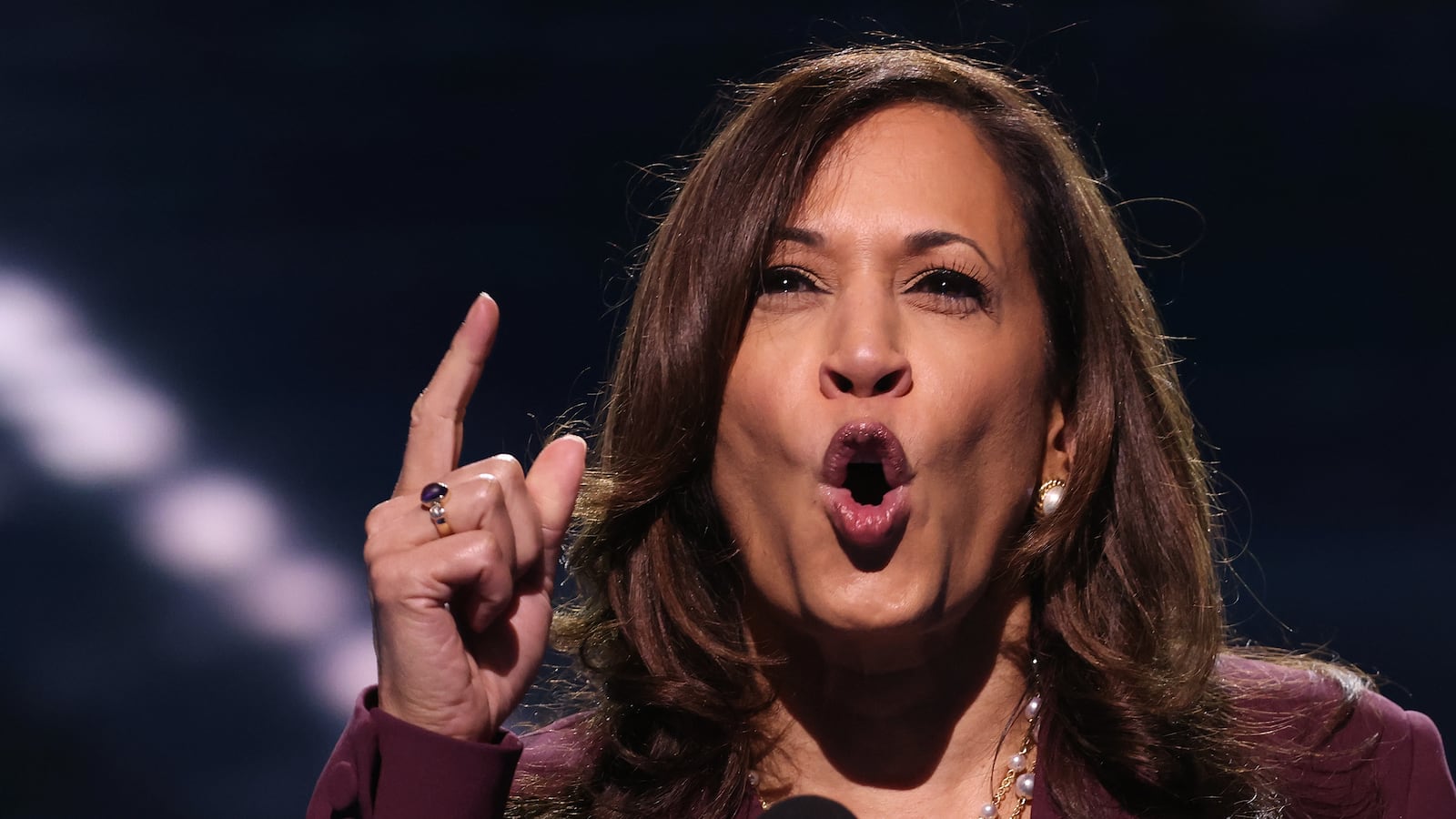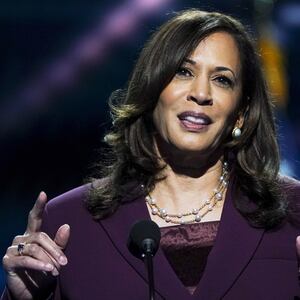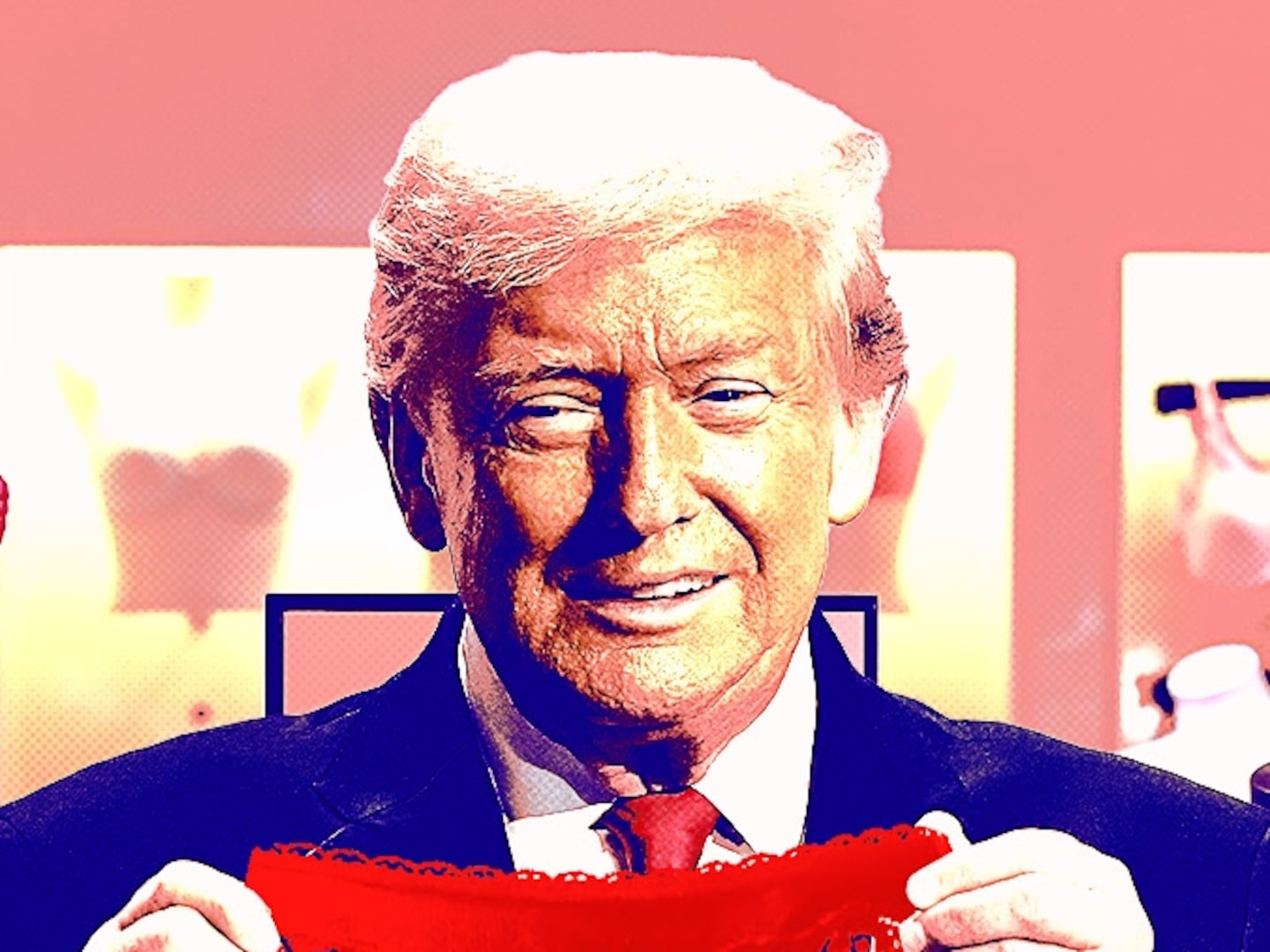Hailing her multi-racial, immigrant heritage—and celebrating generations of female leaders of color who came before her—Sen. Kamala Harris (D-CA) accepted the Democratic Party’s nomination for vice president on Tuesday night, making history as the first woman of color ever to formally join a major-party presidential ticket.
Harris, who ran for the Democratic presidential nomination herself in 2019, is a nationally known political figure. But in a roughly 20-minute long speech, Harris effectively reintroduced herself to the nation as Joe Biden’s running mate, delving into her upbringing in California, her education at Howard University, and her work as a district attorney and state attorney general.
But for a candidate who was praised for her ability to, as she frequently put it, “prosecute the case” against President Donald Trump, Harris soon got down to the business of lacing into the incumbent’s record. She snuck in barely-veiled digs early—“I know a predator when I see one,” she said of her days as a prosecutor—and edged into a brisk indictment of Trump’s handling of the COVID-19 outbreak.
“Donald Trump’s failure of leadership has cost lives and livelihoods,” said Harris. “We can do better and deserve so much more. We must elect a president who will bring something different, something better, and do the important work.”
Citing the racial disparities of the outbreak that have hit communities of color hard, Harris pointedly said, “there is no vaccine for racism.”
Any lingering tension from the Democratic Party’s 2020 primary—which saw Harris at one point land a blow on Biden’s record on race that stung for months after—was nowhere to be found during the Democrats’ virtual gathering, now in its third night.
The California senator’s speech, which came after a long rebuke of Trump by former President Barack Obama, blended her own personal story with Biden’s—drawing heavily, in particular, on her friendship with Biden’s late son, Beau. When both were attorneys general of their respective states, Harris recalled, they spoke “every day” while working together to hammer out a landmark mortgage settlement with the federal government after the 2008 financial crash.
The speech, delivered to a largely empty arena in Wilmington, Delaware, denied Harris—widely seen as one of the party’s strongest orators—the normal, energizing beats of applause and cheers that are so typical of convention addresses. At the end of her remarks, Harris waved and cheered at a massive screen filled with video feeds of supporters nationwide applauding her. Biden and his wife, Jill, appeared onstage to applaud Harris, too—but they couldn’t join hands or embrace in the customary show of ticket unity, preferring a show of social distancing best practices.
Wednesday night was not Harris’ first foray into convention politics. In 2012, while serving as California’s attorney general, she gave a vigorous address outlining the importance of electing Obama to a second term.
Speaking back then to a whistling, in-person crowd to promote the Obama-Biden White House (without mentioning Biden by name), Harris used her roughly six minutes of speaking time by starting with a directive—“let’s get right down to business”—and ending with a wishlist of what she believed was possible to achieve under Democratic-led top leadership.
In some ways, that moment of nearly a decade ago served as a preamble for the Democratic National Convention’s third night, as she sought to deliver some of the no-nonsense “truth telling” that she made a hallmark of her own 2020 campaign.
“The road ahead is not easy,” Harris said. “I pledge to you we will act boldly and deal with our challenges honestly. We will speak truths, and we will act with the same faith in you that we ask you to place in us.”








